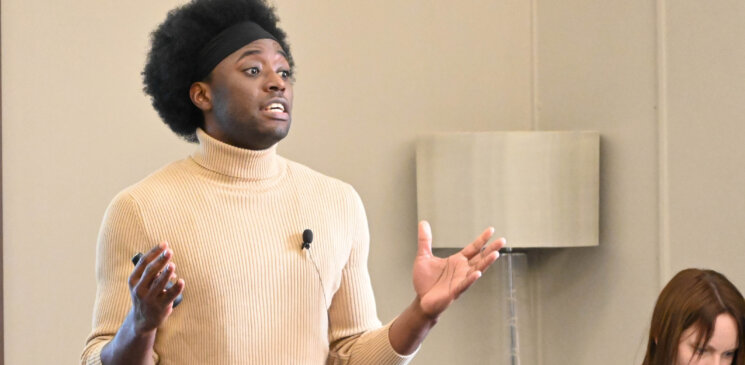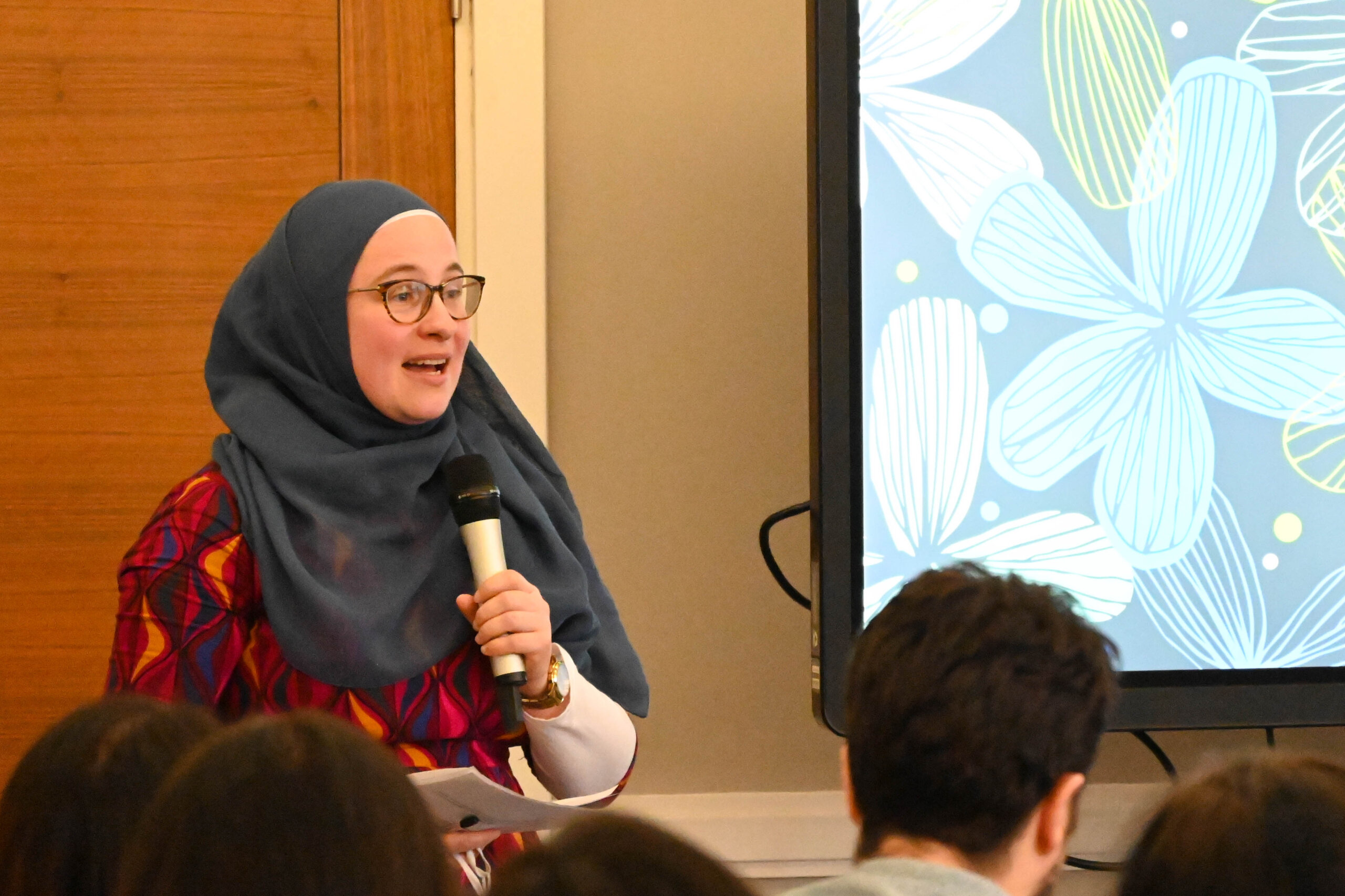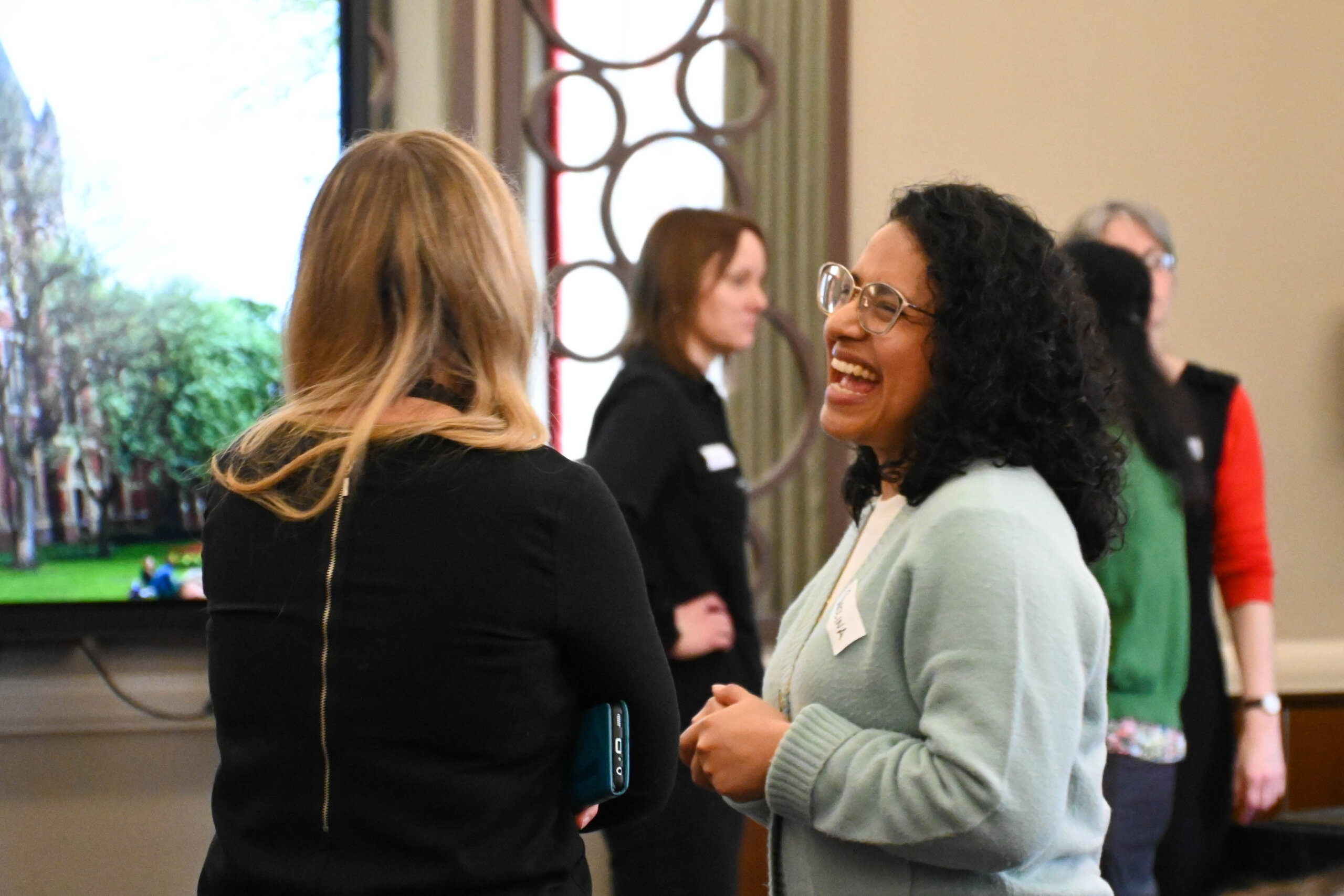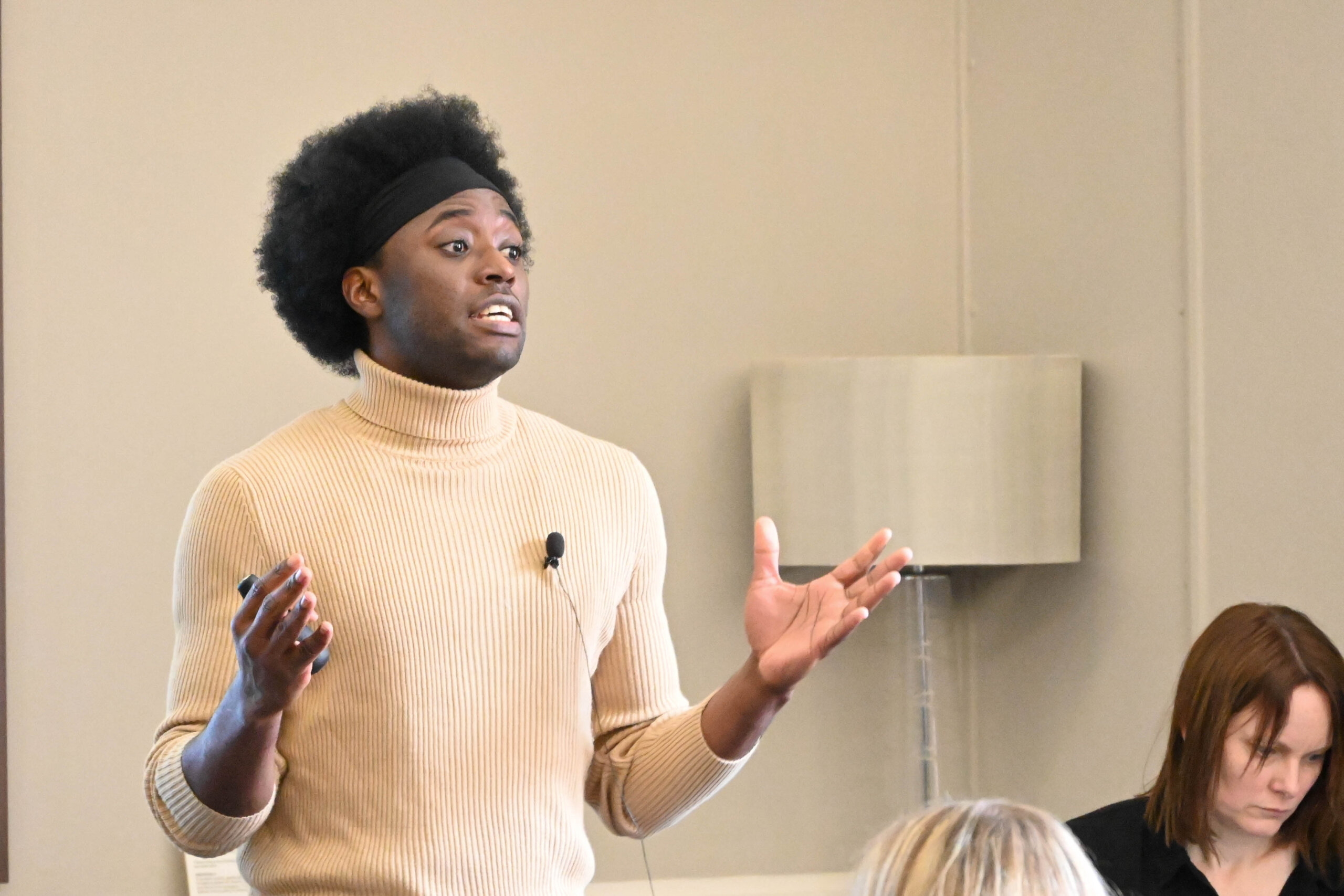
This blog was written by members of the Horizon Institute, a University of Leeds organisation that seeks to connect interdisciplinary research with communities, NGOs and charities, local authorities, policymakers, businesses and the public, developing research together to create a positive impact.
The challenge of decolonising research can sometimes feel insurmountable, and working with a strong values-led approach can feel isolating when your research methods and practices seem to be the exception, rather than the standard practice.
The Decolonising Research Methods showcase, held on Thursday 22 February, developed as a result of a collaboration between the Horizons Institute and the Leeds Social Research Methods Centre, who saw an opportunity to create connections between researchers working across the University of Leeds. Informed by discussions with researchers across disciplines, the event was co-created with the academic community and brought together presenters from across disciplines and at different career stages.
Panel chair, Jennifer Philippa Eggert of the Joint Learning Initiative on Faith and Local Communities, said: “I would like to share three main reflections of the event: first, there is incredible diversity of approaches and richness in practice when it comes to working towards decolonial ways of producing research and evidence; second, there is a need to consider positionality and adopt intersectional approaches, as what research methods are appropriate will change depending on who implements them, where and with whom; and third, that it takes courage to do things differently despite the pressure to conform.”

On the day itself, 18 speakers from five different faculties presented to a sold-out event, with 70 colleagues attending from across the University. The day also linked colleagues with other initiatives, such as the Decolonising Research Framework and the Belonging and Success Research Group.
Presenter, Francis Poitier from the Nuffield Centre for International Health and Development in the Faculty of Medicine and Health at Leeds, reflected on the importance of the cross-disciplinary approach: “The showcase brought together researchers from various disciplines which allowed us to reflect on diverse research experiences. It was incredibly valuable to learn from other scholars in how they decolonise methodological approaches in research.”
“I learned about new research techniques, such as body mapping and narrative approaches, that I could apply to my work. Crossing disciplinary boundaries is key and should be encouraged in all decolonising work. Broadening our scope and research lens adds value in conceptualising and conducting impactful research.”
In the breaks between sessions, and through the lunch, conversations over coffee, and in the corridor outside the main room, saw researchers sharing their research and exchanging contacts.
Presenter, Carolina Montoya Pachongo, from the School of Civil Engineering in the Faculty of Engineering and Physical Sciences, welcomed the opportunity to broaden her understanding of different methodologies: “As a researcher in water security I found this event very inspiring because of the diversity of topics and methods in education, art, and social studies in the Global South.”

There were reflections from presenters and participants alike on the systemic issues researchers face in every aspect of their work, particularly on working within existing systems that prevent the development of equitable partnerships. Cross-disciplinary challenges were voiced, such as issues in writing bid applications and in publishing research findings, and participants shared their own approaches, perspectives, and experiences.
And while there were plenty of tough questions being asked of the presenters, and the hosts, throughout the day, it was encouraging to see these being asked and answered in a respectful and supportive way.
Panel chair, Ariana Phillips-Hutton, from the Leeds Faculty of Arts, Humanities and Cultures, said: “There are questions we need to keep asking through this work, like how can we prioritise developing the relationships that are needed to decolonise research methods within the pressures of the university system? There is also a danger of reducing ‘decolonising’ to a buzzword, or tacking it on as an afterthought – how do our perspectives influence how we go about our research? And how do we make the processes that exist responsive to what we need?”
The work at the centre of the presentations was highly diverse in terms of research area and approach, but key to the event was the focus on methodologies, which provided a means of finding commonalities across disciplines.
Horizons Institute Research Manager Kate Kellett said: “The day gave a fascinating insight into how colleagues from different disciplines develop approaches and methodologies to collect and analyse data in very different ways to understand complex problems.”
“Understanding research methods can be a way of unlocking some of the barriers that exist between researchers in different disciplines. How someone collects and interrogates their data give can give useful insights, uncover commonalities, and be a path of discovery to different approaches.”
Through the event and in the week since, we have had a lot of positive responses about the event, and some welcome critiques too relating to frustrations around the limitations of the day, and the lack of representation from some disciplines.
Presenter, Eric Atwell, from the Artificial Intelligence for Language group in the School of Computing, Faculty of Engineering and Physical Sciences, identified the presentation of research methods as a valuable insight. However, he also reflected; “The event was billed as interdisciplinary. However, my impression was the research methods were largely drawn from humanities and social science.”
But the opportunity to make new connections, to find commonalities and to create a community of practice in a space provided to reflect and listen, seemed to be of value to those involved.

Ariana Phillips-Hutton commented that “the primary value of events such as this is the opportunity to find solidarity with others, sometimes in unexpected places, who care deeply about questions such as ‘what does justice mean in research?”
At the end of the event Jennifer Philippa Eggert posed the question: “Events like this are fantastic because they allow us to learn from each other, but we also need to think about how we can collectively work towards long term, systemic change?”
There may be some way before we can answer questions like this, but, as with all work within the decolonising agenda, this event could only ever have been a small part of the movement to address this challenge. The real success of the day can only be determined in the longer term, if the new connections flourish to create a community strong enough to make a values-led decolonising approach the standard, rather than the exception.
About the Leeds Social Research Methods Centre
The Social Research Methods Centre is a hub for sharing our diverse methods across the Faculty of Social Sciences. Our use of varied methods enables transformative research surrounding the human experience and societal challenges.
This research centre is a means of strengthening methods expertise to make strong interdisciplinary contributions to the Faculty and the University, as well as the global methods community.
About the Horizons Institute
The Horizons Institute provides a shared platform for tackling global challenges. These challenges are too complex to address in a single academic discipline or sector.
Our supportive environment creates opportunities to develop new collaborations that inspire bold ideas and approaches. We help academics enhance their interdisciplinary skills, build their careers and elevate interdisciplinary research – at Leeds and around the world.
We connect interdisciplinary research with communities, NGOs and charities, local authorities, policymakers, businesses and the public, developing research together to create a positive impact.